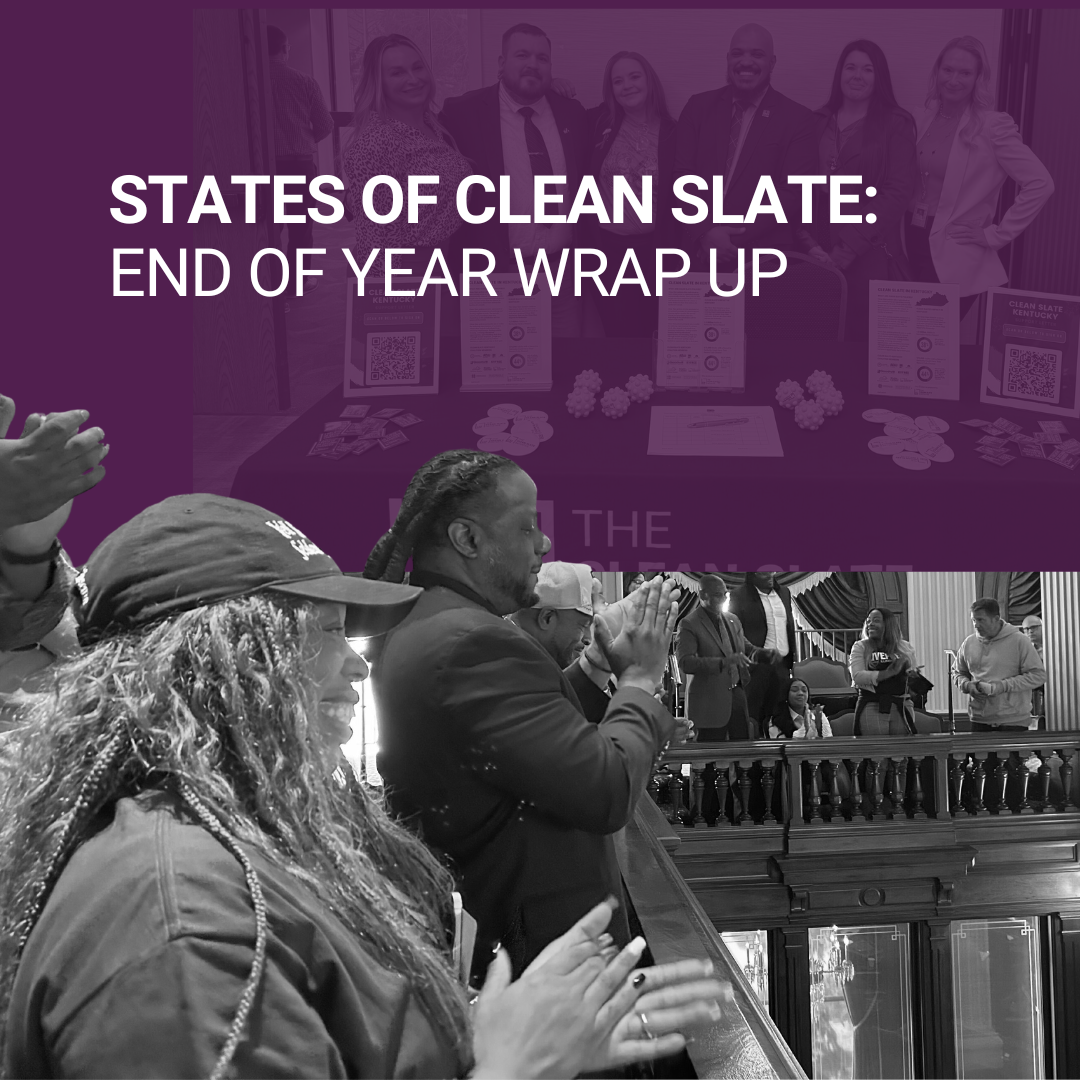CSI Jumps In: Our Staff Joins Expungement Clinics Across the Country

At The Clean Slate Initiative (CSI), we understand that our work extends far beyond passing and implementing laws; it's also about fostering a sense of belonging and empowerment for the communities and individuals who are looking to receive a Clean Slate. But, how can we do this properly without grounding ourselves first?
When Sheena Meade, CSI’s CEO, empowered me to organize our Second Chance Month volunteer experience, I had no idea I would be embarking on a journey that would eventually transform our organization and how we think about our work.
In engaging our staff in a multifaceted activity, like the Second Chance Month Volunteer Experience, our intentions were to facilitate staff learning and staff connection to our mission and also provide valuable resources and support to individuals seeking record clearance on their path to redemption. So, what better way to do this than allowing staff to volunteer at expungement clinics across the country with partners who have an unwavering dedication to second chances like we do?
As an operations manager, sometimes it can feel like I am so far removed from the communities and the people we serve at CSI, because I’m typically a background player who helps keep the machine running. My participation during the Second Chance Month Volunteer Experience helped me reconnect.
I had the opportunity to volunteer at the Reid Temple Expungement Clinic in Prince George's County, Maryland. Though I had been to many expungement clinics before, this experience was different!
Many individuals at this clinic came in carrying the burden of past mistakes, often in the form of minor offenses that continue to haunt them long after they have paid their dues to society. This expungement clinic served as a beacon of hope for those seeking a second chance. It wasn’t just about legal proceedings and red tape processes; it was more about how one person, or one organization, can change the trajectory of someone else’s story just by showing up with some resources and listening to that person’s needs.
Unexpectedly, I had a paradigm shift while volunteering at this expungement clinic. I realized it was more than just a community service activity; it showed me that the attendees didn't see me as a background player or an operations manager — they just saw someone wearing a Clean Slate Initiative t-shirt who was willing to listen to the barriers they face with employment, housing, education, and even fundamental rights such as voting. They saw someone who was willing to advocate for them. This expungement clinic gave me an understanding of the importance of expungement clinics nationwide.
But I wasn't the only one who had a memorable experience participating in our staff volunteer opportunities. Several of my colleagues also participated at events in both Maryland and Florida, each gaining their own insight and perspectives on expungement clinics and the impact they have on the communities we serve at CSI.
Dr. Laura Chavez, Director of Data and Research, shared with me that her participation helped her realize how complex the petition-based process actually is. She noted that the clinic was vital for people who have nuanced questions about their records that they need to ask a lawyer about, in addition to receiving support filling out and filing the paperwork. She was also surprised at the age range of people who were seeking relief:
“I was surprised by how many older people were at the clinic seeking relief. One thing I learned is that the barriers posed by records don’t end at retirement age. Senior housing can have restrictions based on people’s records, for example. In addition, people of every age want a clean slate and a second chance.”
My colleague Ryan Ewing, a campaign strategist, is an attorney who has participated in expungement clinics previously — and even he was surprised at how the complexity of the expungement process has increased since his last experience. He also noted how important community support is for people seeking a second chance:
“It seems to me that the idea behind giving people second chances and allowing them to put their pasts behind them is a universal feeling, and we should not be defined by our worst moments.”
My biggest takeaway from this experience was the revelation of how much of a profound impact just one person at an expungement clinic can have on a justice-impacted individual… and anyone can be that person. Volunteers are needed to help run these kinds of events everywhere around the country. It’s a great way to get involved.
On behalf of the CSI team, “10/10 - Would Recommend!”.
.avif)


.png)
